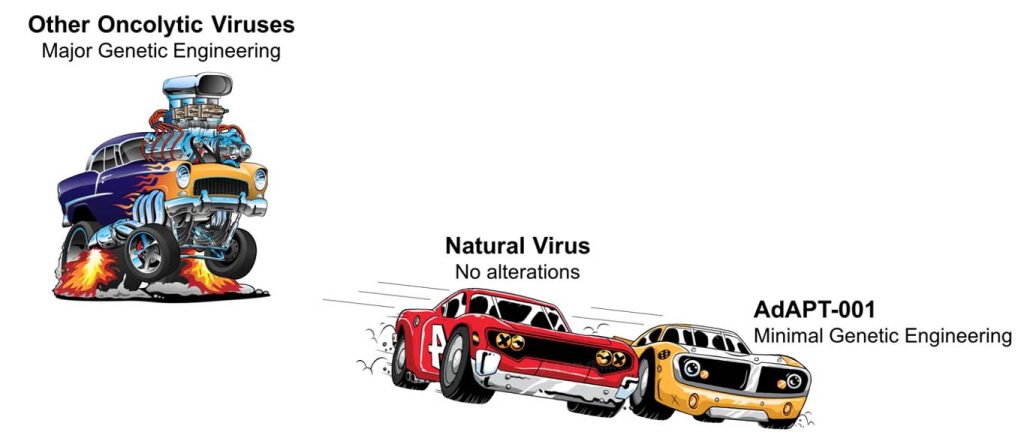In a TV review about a serial killer, we came across this pithy phrase: “all killer, no filler” (AKNF). AKNF denotes no extraneous content i.e., no filler, which perfectly encapsulates the minimalist design and effectiveness of the oncolytic adenovirus, AdAPT-001.
Over billions of years, native or wild-type adenoviruses have evolved for optimized transmissibility and infectability.

In most oncolytic adenoviruses, much like race cars, all non-essential elements have been stripped away, sacrificed on the altar of speed and efficiency. To make them “street legal” or safe for patients, many oncolytic viruses are ‘tricked out’ with different components, substantially altering their genetic “engine” or DNA and the “chassis” or protein shell, which protects them. This makes these oncolytic viruses potentially safer but slower and less efficient, which impacts not only their efficacy but also their manufacturability.
With speed and efficiency in mind, as well as safety, AdAPT-001 was engineered with the fewest possible additions and deletions to its structure “chassis” and genetic material “engine”. AdAPT-001 carries a therapeutic gene called a TGF-beta (TGF-b) trap. The TGF-beta trap binds to and neutralizes the immunosuppressive protein, TGF-b, then infects and copies itself or replicates like a wildtype virus. This makes AdAPT-001 potentially more active in patients and also easier, faster, and cheaper to manufacture—a killer (of tumors) with very little filler.
